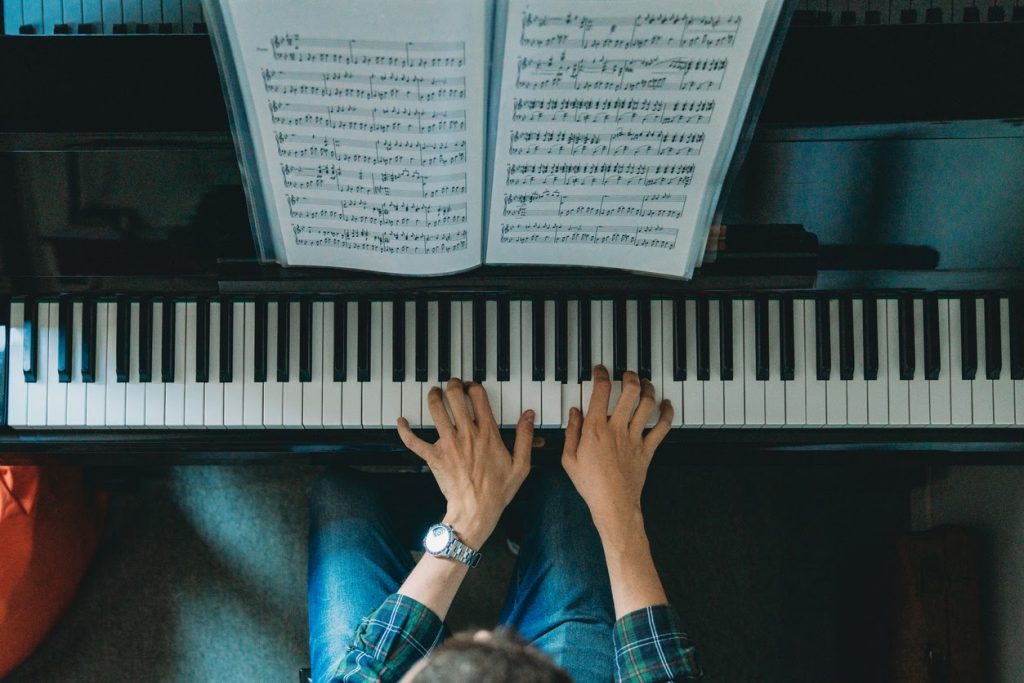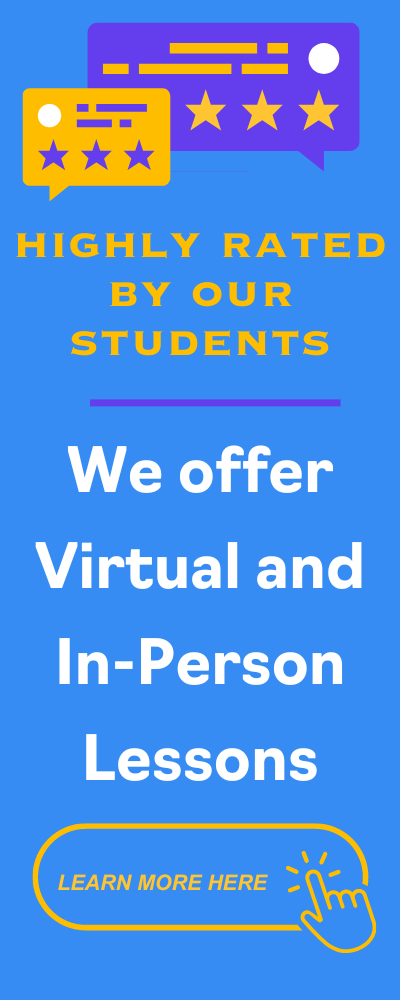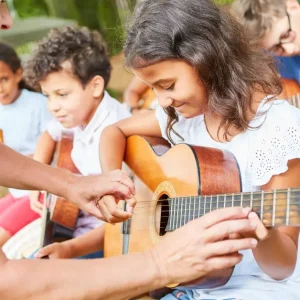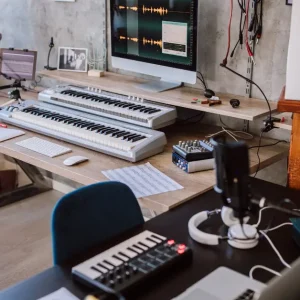Pianos are a highly versatile instrument, with a significant presence in nearly every genre of music. They’re also the most popular instrument for students to learn — but not because learning piano is easy.
Whether you want to teach yourself piano, take a real-time piano course, or hire a piano teacher, the process of learning this complex instrument can sometimes be frustrating. Avoiding the common beginner mistakes below can make learning piano more enjoyable so that you can reap all the benefits of learning a new instrument.
1) Long or inconsistent practice sessions.
Everyone says practice makes perfect, but it turns out that when it comes to piano playing, you can have too much of a good thing. Just as with any instrument, learning piano comes with growing pains. From mental fatigue to cramping fingers, your mind and body need time to adapt to the things you’re asking of them.
To avoid the effects of burnout or injuries that could set you back:
- Keep practice sessions short. In the beginning, even 10 minutes a day is plenty to keep you engaged without overwhelming your senses. If you miss day or two, don’t try to cram in several make-up sessions all at once. You’ll benefit more from allowing yourself to come back to the piano refreshed than pushing through a long, arduous session just to hit a certain amount of practice time in a week.
- Break your sessions up — but stick to a routine. Each practice session should include a warm-up that focuses on technique through scales and arpeggios; time spent reading sheet music; and something fun. Whether you’re going through a piano course at your own pace or you’ve hired a piano teacher to guide you through the basics, vary the specifics of what you cover in each session. If all you do is practice the same chord progressions or easy songs over and over, you’ll get bored. You should incorporate ear training, sight-reading, and new piano chords, and other technical challenges to keep things interesting.
- Work at your own pace. Every piano student is different, and jumping to the next level before you’re ready will only make things more difficult later on. Give yourself time to go through the process of learning piano step-by-step to ensure you become the best piano player possible.
- Have fun! The best way to learn piano is by allowing yourself to enjoy the process. Music theory and ear training are essential, but most of the fun in playing an instrument comes from actually playing it. Always end your practice session with something you’re having fun with — like learning a line in one of your favorite songs.
These simple steps can help you to make the most of every practice session.
2) Incorrect fingering.
One of the most challenging parts of learning the piano is getting comfortable with proper hand position and fingering technique. It can be complicated because the “right way” to approach the keys is based mostly on the natural shape of your individual hands. That said, a couple of general rules apply:
- Shorter fingers play longer keys (your pinky and thumb — and the white keys)
- Longer fingers play shorter keys (your index middle, and ring fingers — and the black keys)

Improper fingering can be a detriment as you move to the next level, slowing you down, making pieces more difficult to play, and ultimately impacting your sound. Additionally, some songs or passages require you to think outside the box in terms of fingering since what is right and what is easy may not align, and it’s challenging to do this without having a solid foundation.
Practicing technical skills like scales and arpeggios, using consistent hand position and fingering for similar patterns, and writing down your fingerings can help you to create the mind-body connection needed to benefit your playing long-term.
You can learn proper fingering techniques by working with a piano teacher, using a methods book, or reviewing free resources online.
3) Not learning how to read sheet music.
Since pianos can be played as solo instruments or accompaniment, pianists must learn how to read sheet music — and not just the notes on the page. As a piano player, it’s your job to help drive the emotion and energy in a piece. You need to be able to interpret all the extra details of a song, like the time signature, tempo, articulation, and dynamics.
Studying music theory is a critical component of reading sheet music. It can help to:
- Make learning pieces quicker and more efficient
- Improve your sight-reading abilities
- Give you the skills to improvise
- Prepare you for performance
- Strengthen your appreciation for music
If you’re working with a music teacher, they’ll likely include theory in your piano lessons. If you’re going to teach yourself piano, you can use a free resource like this “Fundamentals of Music Theory” class on Coursera to get started.
4) Attempting to play music beyond your skill level.
Learning piano takes time and diligence to master, and it’s frustrating when you feel like your progress has stagnated. In these moments, it can be tempting to skip ahead. But trying to play music that is more advanced than you’re ready for will only make things worse. It can lead to further frustration, poor habits, and reduced confidence.
Pushing yourself can be a good thing when timed right. When you feel the itch to try something harder, start with some of the tactics below.

- Go back to the basic piano skills. There’s always room for improvement, and truing up your skills in this area will better prepare you for that next level.
- Play a piece you’re comfortable with at a different tempo. Faster or slower, even a slight change of pace can reveal techniques that need work.
- Practice improvisation. Use the chord progressions and keys you’ve been working on and see what you can create.
Once you feel confident in these areas, forge ahead! Just don’t be afraid to slow your pace or take a step back if the music you’re attempting still feels out of reach.
5) Skipping piano lessons.
Google can provide lots of free resources to help teach yourself piano, but there’s no substitute for taking piano lessons. Private lessons allow piano students to work one-on-one with a specialized instructor to receive tailored tutoring in all the intricacies of their instrument. Private lessons also provide:
- Greater accountability that promotes discipline and work ethic
- An individualized approach to achieve specific goals
- A sense of identity that can keep students inspired
Learn to Play the Piano Today!
If you’d like to learn the basics or improve your skills, Sloan School of Music offers in-person and virtual video lessons with expert instructors. Contact us today to learn more or sign-up for your first lesson








